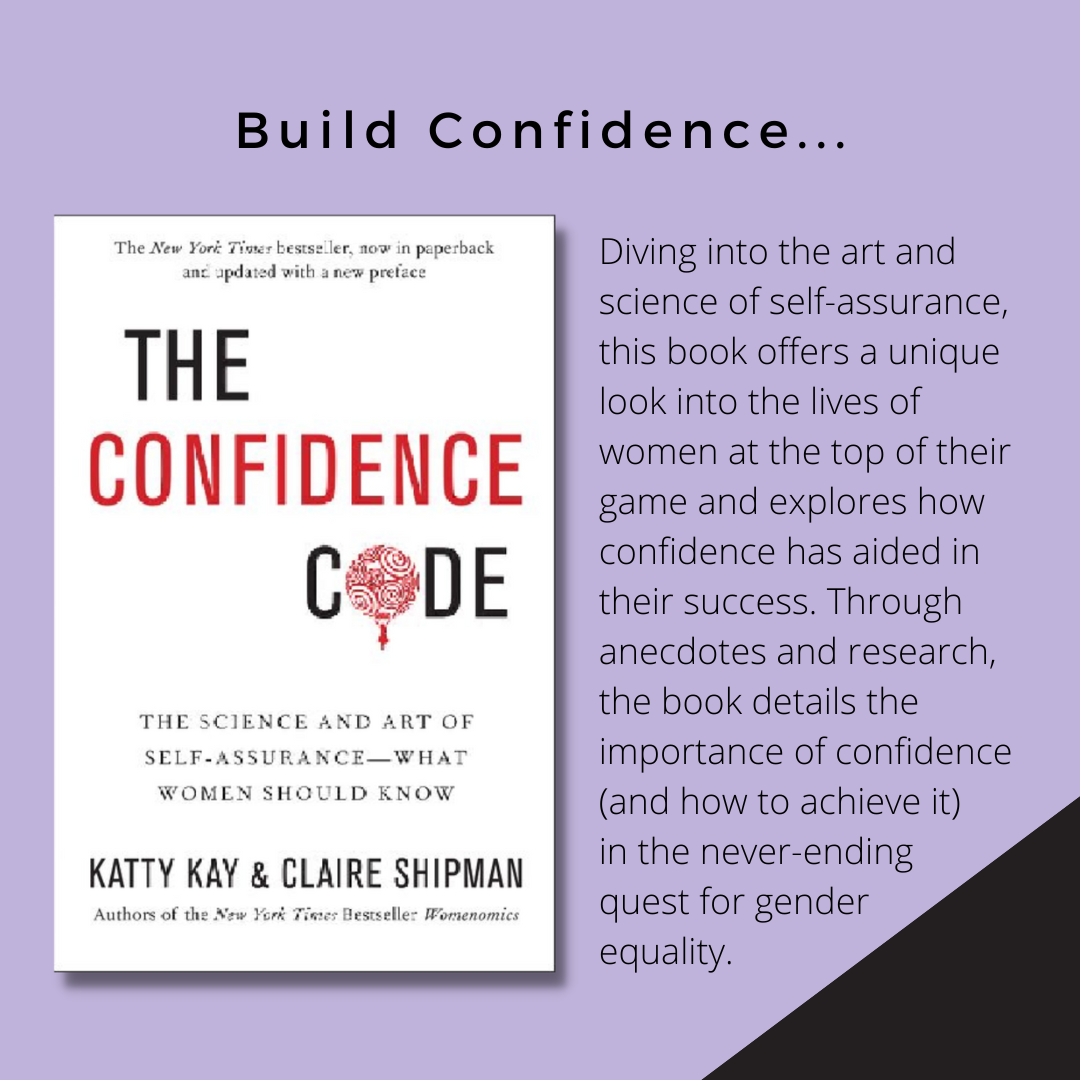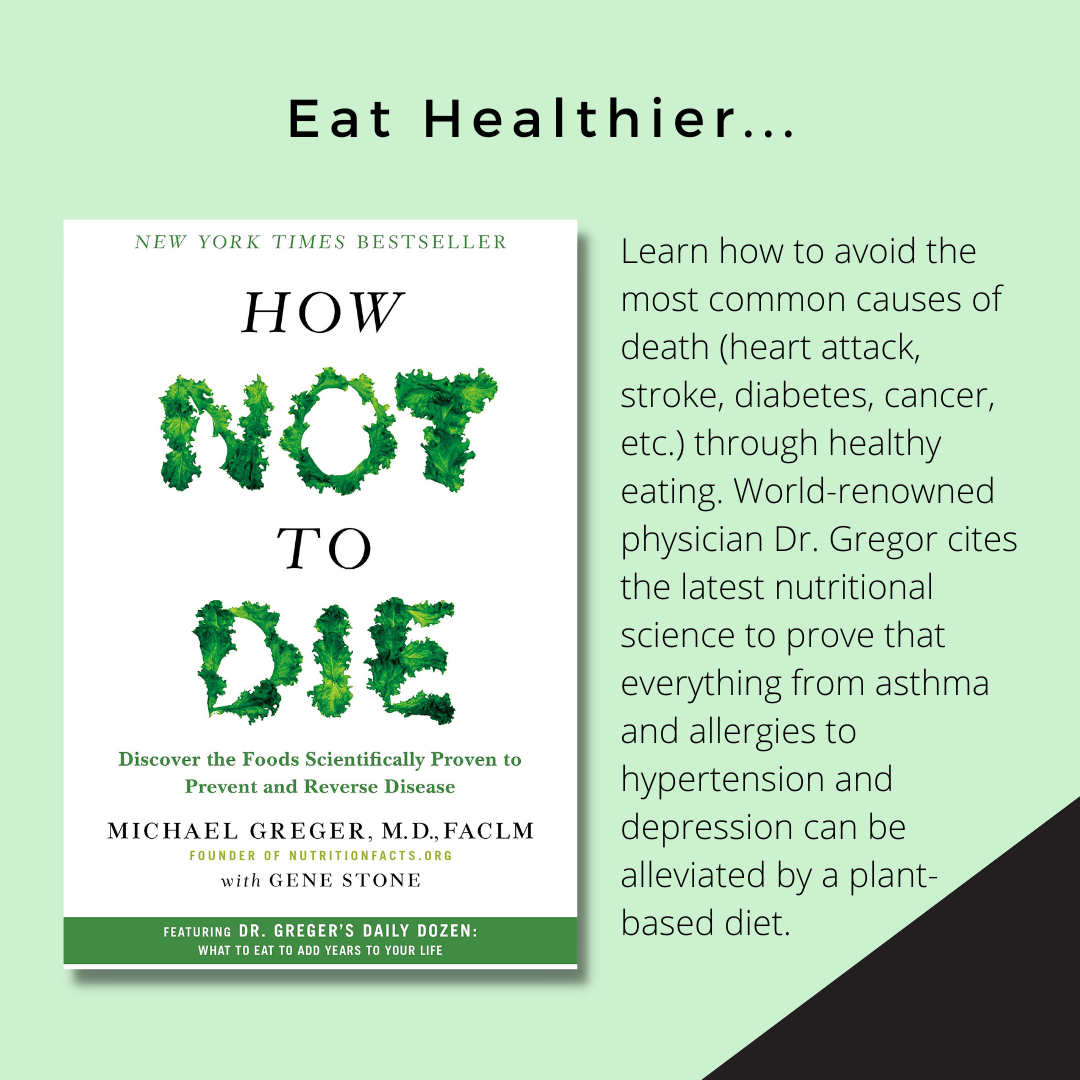7 Nonfiction Books for Self-Improvement
Book Recommendations
Are you a fan of self-improvement / self-help books? If so, this one's for you!
Scroll down to see my recommendations of books to help you sleep better, eat healthier, build confidence, practice mindfulness and more!
If you're interested in buying one (or all!) of these books, click the linked title names to purchase via Amazon. Disclosure: Bookmarkparty receives a small (very small) commission for sales made through affiliate Amazon links.
Build Better Habits:
Atomic Habits by James Clear
One of the world's leading experts on habit formation, author James Clear consults Olympic athletes, business leaders and physicians in this practical guide to breaking bad habits and building a more productive life.
If you're already read The Power of Habit by Charles Duhigg, some of the strategies in Atomic Habits may feel a bit redundant. However, Atomic Habits is more geared towards the individual while The Power of Habit feels more like a business book as it relates many of its teachings to business practices / examples. I personally preferred The Power of Habit to Atomic Habits - as I really enjoyed the real-life business examples the author used to demonstrate his strategies in action. That said, Atomic Habits is certainly a worthwhile read as well - especially if your main goal is self-improvement.
Sleep Better:
Why We Sleep by Matthew Walker
If you’ve ever been curious about why sleep and dreams are necessary, this book is for you. Written by renowned neuroscientist and psychologist Matthew Walker, the book explores a vast number of studies and scientific discoveries that prove why sleep is essential to learning, decision making, wellness, appetite and much more.
A few of my most fascinating takeaways for the book:
—Some animals, like dolphins and whales, can sleep with half of their brain at a time. This allows them to perpetually maintain movement and stay afloat. When one half of the brain is finished sleeping, the other side will snooze.
—Drowsy driving causes more vehicle accidents than those caused by alcohol and drugs combined
—40% of the population identifies as “morning people”, 30% as “evening people” and 30% lie somewhere in between (🙋🏼♀️). Whether you’re a morning person or an night owl is largely determined by genetics
—For humans, the “recycle rate” is about 16 hours, which means after being awake for more than 16 hours, your brain begins to fail
Build Confidence:
The Confidence Code by Katty Kay & Claire Shipman
Diving into the art and science of self-assurance, this book offers a unique look into the lives of women at the top of their game and explores how confidence has aided in their success. Through anecdotes and research, the book details the important of confidence (and how to achieve it) in the never-ending quest for gender equality.
While this book is certainly geared towards women, I think people of all genders could learn something from it.
A few fascinating quotes from The Confidence Code:
--“Success correlates more closely with confidence than it does with competence.” (WORDS TO LIVE BY)
--“Even though we can generate new supplies of oxytocin by having babies and by hugging more, some of us are simply born with more [confidence] and thus may start out with a higher baseline of confidence-enhancing attitudes and behaviors.”
--“Maybe Nike has it right. At some point we have to stop thinking, and just do it.”
--“Preparation and practice melded with a sense of purpose = the zone of confidence.”
Learn Self-Compassion:
The Gifts of Imperfection by Brene Brown
The New York Times bestselling author and shame researcher, Brene Brown, explores psychology, science and anecdotal evidence to help readers overcome adversity and live a more authentic and wholehearted life.
While Brene Brown has published many books in the self-improvement genre, this is certainly one of my favorites.
REAL TALK... The Gifts of Imperfection was one of the first "self-help" books I ever read (and my introduction to the incredibly wise Brene Brown), which I picked up at the recommendation of my therapist. Perhaps it was simply where I was at in my life, but this book really spoke to me. As someone who has always struggled with perfectionism, this book really helped demonstrate to me (both through the research studies and anecdotes provided in the book) that perfection doesn't exist. No one is perfect, therefore, no one expects YOU to be perfect. What's more, perfect isn't relatable... so sharing your flaws and imperfections with others (rather than hiding them like many of us are trained to do) is actually one of the best ways to build trust, compassion and humanity.
Eat Healthier:
How Not to Die by Dr. Michael Gregor
When was the last time you read a book that changed your life? Reading How Not to Die certainly changed mine. Since reading this book a couple years ago, I’ve completed changed my diet and become a believer in the healing power of food.
In this New York Times bestseller, Dr. Greger discusses the top fifteen causes of death in America - including cancer, heart disease, suicidal depression, diabetes and more - which kill 1.6 million Americans each year. In great detail, he explains the diet and lifestyle changes necessary to prevent (and sometimes even reverse) these diseases. He advocates on behalf of an “evidence based diet” and theorizes that the key to living a long and healthy life is eating a whole-food, plant-based diet. He cites the latest nutritional science to prove that everything from asthma and allergy symptoms to hypertension and depression can be alleviated by cutting out processed food and sticking to a plant-based diet.
He also includes a checklist he calls the “Daily Dozen”, which is a list of the food we all should eat daily to maintain optimal health. The list includes the following:
—3 servings of beans
—1 serving of berries
—3 serving other fruit
—1 serving of cruciferous veggies
—2 servings of greens
—2 servings other vegetables
—1 serving of flaxseed
—1 serving of nuts
—1 serving of spices (like turmeric or ginger)
—3 servings of whole grains
—5 servings of beverages
—1 serving of exercise
If you’re interested in tracking your intake of the daily dozen (or just learning more about the checklist) you can download Dr. Greger’s Daily Dozen app (it’s free) or check out his website: nutritionfacts.org
Even if you're not interested in pursuing a strict plant-based diet, there is still much to learn from this book about how to improve your diet.
Breathe Easier:
Breath by James Nestor
If you’ve ever wondered how breathing affects your health, this book is for you. James Nestor spent years experimenting on himself and interviewing experts around the world to uncover the many ways in which the simple act of breathing affects things like athletic performance, chronic illness, sleeping, blood pressure, lifespan and more.
A few of my most interesting takeaways from this book:
—Our ancestors had perfect teeth, wide nostrils and open airways (all of which aided proper respiratory function), so why do most present-day humans have crooked teeth, small mouths and suffer from respiratory problems? Based on Nestor’s research, this is largely due to our modern diet of soft (and processed) foods… in other words, a lack of chewing has led to the evolution of less effective breathing.
—Mouthbreathing directly contributes to all kinds of issues like high blood pressure, ADHD (due to disturbance of oxygen to the brain), chronic insomnia, bad breathe, cavities and more. PSA: breathe through your nose!
—Does your partner’s snoring keep you awake at night? Try taping their mouth shut (with their consent of course 🥰). Apparently the simple act of forcing the body to breathe through the nose, rather than the mouth, drastically reduces instances of both sleep apnea and snoring. I’m trying to convince my dad to give this one a go - as his snoring could raise the dead - however, he remains skeptical… can’t imagine why. 🤔😂
—The “perfect” breathe is a 5.5 second inhale followed by a 5.5 second exhale, which equals 5.5 breathes per minute. Apparently breathing this way for even just 5 - 10 minutes per day can have substantial health benefits (much like meditation and yoga).
—Humans have the ability to raise and lower their body temperature (and thereby withstand extreme heat and cold) simply by breathing. Curious about this one? Google Wim Hoff - he’s broken 20+ world records for seemingly impossible feats (like sitting in an ice bath for nearly two hours).
In the appendix Nestor details all the specific breathing techniques mentioned throughout the book. Definitely a fascinating read!
Practice Mindfulness:
10% Happier: How I Tamed the Voice in My Head, Reduced Stress Without Losing My Edge, And Found Self-Help That Actually Works - A True Story by Dan Harris
Part memoir, part self-help book, newscaster Dan Harris offers a glimpse inside his life (from on-air meltdown to self-discovery) in this tangible guide to managing anxiety, depression and more through meditation and mindfulness.
While books on meditation and mindfulness are a dime a dozen, I really enjoyed this one as it's more narrative than simply esoteric concepts (like say The Power of Now) and therefore easy to read and understand.
One thing to note, the author's privilege as a well-to-do white male is certainly notable in the book; however, if you can get past that part, this is certainly a good introduction to meditation and mindfulness in an easily digestible format.
That's all for now! Stay tuned for more quality book recs. And in the meantime, hop on over to The Bookmarkparty Shop to check out all my bookish merchandise (including The Nonfiction Enthusiast Book Spines Mug, which features my hand-drawn book spines... including some of the books mentioned in this article).








